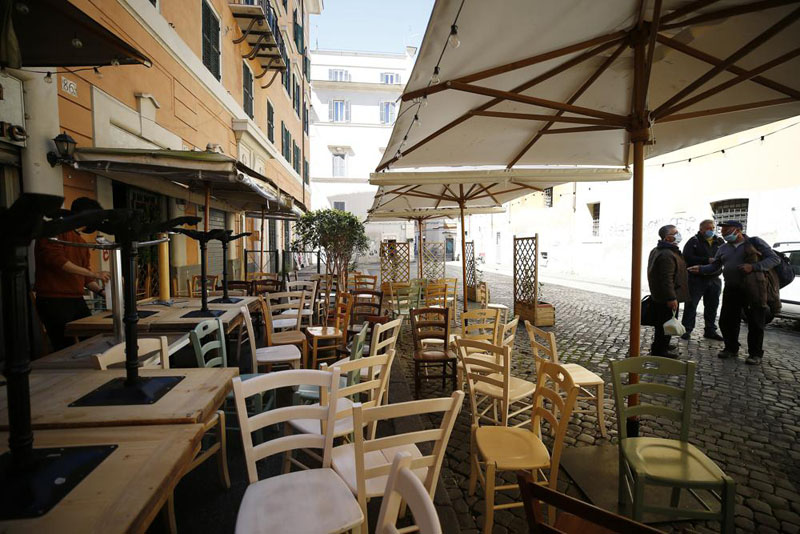

The European Commission this week raised its estimates for Italy’s economic growth this year, the latest sign that the country’s economy may be picking up steam after much of its economic activity was shut down during the worst of the coronavirus pandemic.
Other economic indicators are telling a similar tale. On Wednesday, the government’s statistics institute reported that retail sales were up by more than 13 percent in May year-on-year. The blue-chip index on the Italian Stock Exchange is now up nearly 11 percent since the start of the year and nearly 40 percent since its 12-month nadir last October. So far this month at least three Italian investment banks have upped their ratings for the shares on the main index of the Italian bourse.
Paolo Gentiloni, former Italian prime minister who is now the European Commissioner for Economy, announced the revised prediction for Italy’s economic growth on Wednesday, saying the commission’s models now forecast the economy would grow around 5 percent this year, up from the previous prediction of a 4.2-percent growth. If the estimate proves correct it means the economy will have regained more than half of the 8.9-percent contraction from 2020.
The prediction for economic growth this year in Italy is stronger than its 4.8-percent forecast for the European Union as a whole.
According to Giandomenico Piluso, an economist and professor of economic history at the University of Turin, several factors are involved in the strengthening economic situation, including the country’s fast-moving coronavirus vaccination rollout strategy and improving levels of industrial production.
He also said that expectations of inflation in the coming months could incentivize companies to make investments sooner rather than later, and that part of the country’s coronavirus recovery strategy has addressed pre-pandemic problems such as a slow-moving justice system and a lack of incentives for research and development.
“We’re seeing small but significant changes in many areas and that is helping improve business and consumer confidence, which is a key area,” Piluso told Xinhua.
Alessandro Polli, a professor of economic statistics at Rome’s La Sapienza University, told Xinhua that the upward adjustment from the European Commission was reasonable. But he cautioned that it might not be a sign that the economic situation in Italy is strengthening.
“If you look at the prediction of 5-percent growth this year and 4.2 percent next year, it would mean it would basically take two years to recover the losses from 2020,” Polli said. “What we are seeing is a technical recovery. Structural changes to the economy are still necessary before we can see sustained growth beyond getting back what was lost during the worst of the pandemic.”